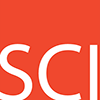Since early 2015, OSI and UNESCO have been collaborating on efforts to create a global, inclusive solution to the future of open research. UNESCO’s efforts entered a new phase in the fall of 2019, gaining official approval from UN General Conference to develop a global open science roadmap on behalf of all agencies of the United Nations.
The next steps are long and involved. As stated in the annex of the General Conference document, page 6 (item 37), “By virtue of its mandate and normative role, UNESCO now invites this debate on Open Science within the international community and consults Member States on possible courses of action, including programmatic and regulatory action. Should new standard-setting activities be decided, based on lessons learned from previous related experiences and on the ongoing discussions on Open Science, it would be strongly recommended to establish a wide multi-stakeholder consultative mechanism on the topic of Open Science. Such a consultative mechanism should invite the input of all Member States, as well as their scientists’ and young researchers’ communities, academics, intellectuals, and civil societies at large. Such an initiative would require financial means. The process could result in the submission of a standard-setting instrument to the General Conference in 2021.”
OSI will play a role in this effort, with our exact responsibilities to be determined (OSI is named on page 3 of the annex of the General Assembly document, item 15). For now, we have been contacting research leaders from WHO, the UN Library, UNDP and elsewhere and connecting them to UNESCO.
OSI will provide whatever input and assistance UNESCO needs in this effort, including but not limited to hosting and attending meetings, providing technical feedback and consultation, and helping with marketing and outreach. In parallel with this work, OSI will continue to develop our “Plan A” (or whatever we end up calling this plan), which is also geared toward creating a global roadmap for open. Our goal is that these two plans will overlap and/or complement each other at some point, so continuing to work on this will help us better understand where we’re going, and will also help us continue to align support for a global, collaborative, inclusive approach. Given that we’re also focusing on “scholarship” and not just “science,” our work will also be important in expanding the conversation (and potential solutions) beyond just the future of STM. We will also continue to support the work of UNESCO’s Communication and Information sector (which in addition to the inter-agency roadmap effort also includes supporting efforts like GLOALL, SciELO, and Amelica), and this sector remains committed to supporting OSI in the coming years.
The proposed timeline for UNESCO’s work is described in the annex, p. 19:
- Project preparation phase: January to October 2019 (already achieved)
- Preliminary study prepared on the technical, financial and legal aspects on the desirability of a standard-setting instrument on Open Science, including a draft Roadmap, based on the Rules of Procedure concerning recommendations to Member States and international conventions covered by the terms of Article IV, paragraph 4, of the Constitution;
- Preliminary study and the draft Roadmap submitted to the Executive Board at its 206th session (April 2019);
- Bibliographic study on the definition(s) of Open Science initiated;
- An information meeting organized for Member States on the draft consolidated Roadmap (June 2019).
- Consolidation and deployment phase: October to November 2019
- Submission of the draft consolidated Roadmap to the Executive Board at its 207th session (October 2019);
- Multi-stakeholder workshop on Open Science in Africa (October 2019-TBC);
- Submission of the preliminary study and of the consolidated Roadmap, with the observations and decisions of the Executive Board at its 206th and 207th sessions, to the General Conference at its 40th session (November 2019).
- Implementation phase and adoption of the draft Recommendation (depending on the decision by the General Conference): December 2019 to February 2022
- Publication of a brochure and other communication material (e.g. short video) for the general public on the initiative, based on the preliminary study, the roadmap and including observations of UNESCO’s governing bodies (December 2019).
- Establishment of the Open Science Partnership (December 2019)
- Establishment of the Open Science Advisory Committee (December 2019)
- Mobilization of Open Science Partnership and organization of an electronic consultation with UNESCO Chairs, C2Cs, external partners, National Commissions and Member States on the draft definition of Open Science and the scope of the Recommendation (January-February 2020);
- Based on the inputs received, preparation by the Secretariat of the first draft text of the Recommendation (March 2020);
- Consultation with relevant stakeholders to collect inputs for the drafting of the Recommendation: (a) UNESCO centres and Chairs, and key science partners; (b) Open consultation with key scientists, young researchers, university professors, academicians and intellectuals, engaged citizens, and relevant public and private entities (April 2020);
- Organization of six regional multistakeholder meetings (one in each region), including representatives of Member States (from May to September 2020) to collect comments on the first draft of the recommendation;
- Communication of the Director-General’s preliminary report on the proposed recommendation, accompanied by the first draft of the recommendation, to the Member States (September 2020) for their comments by end January 2021;
- On the basis of the comments received by Member States, communication of the Director-General’s final report containing a draft of the recommendation to the Member States (April 2021);
- Submission of the final report to the special committee consisting of technical and legal experts appointed by Member States (category II meeting) (July 2021);
- Submission of the draft recommendation to the General Conference at its 41st session with a view to its adoption (November 2021);
- Subject to adoption of the Recommendation by the General Conference at its 41st session, organization of a Global Conference to present the Recommendation will be foreseen in February 2022.
